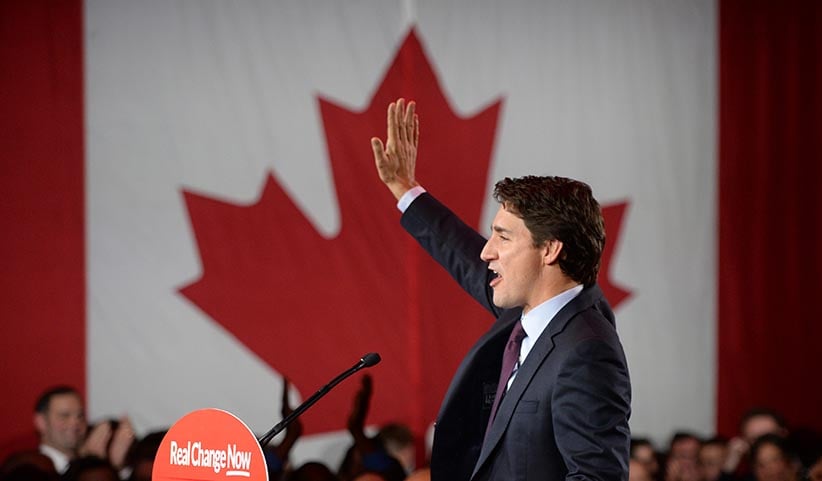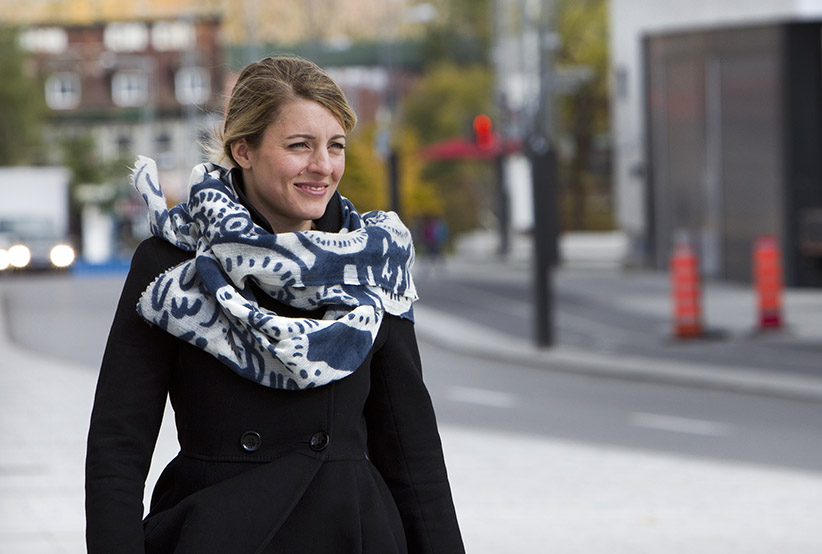Trudeau, cabinetmaker: How change will meet governance
With a promising young caucus, and a handful of veterans, Trudeau has a lot of egos to satisfy—and disappoint
Share

After the election of a remarkable 184 Liberal MPs, incoming prime minister Justin Trudeau has a lot of talent to deploy in his first cabinet. Or, to put it another way, a lot of egos to satisfy and disappoint between now and Nov. 4 as he builds that first cabinet, which he has set as his first priority during the roughly two-week transition to Liberal from Conservative rule. There are a lot of contenders, but looking at just two who get mentioned often in speculation—veteran MP John McCallum and rookie Mélanie Joly—gives a sense of the delicate task of sifting and selecting that Trudeau and his senior advisers now face.
At 65, McCallum, who was re-elected this week in his Toronto-area riding, was chief economist at Royal Bank of Canada before jumping into politics, and served as defence minister under former prime ministers Jean Chrétien and Paul Martin. At 36, Joly, who won on her first try in a Montreal riding, is a lawyer and former mayoral candidate, and headed Trudeau’s Quebec advisory committee back when he was seeking the Liberal leadership in 2013.
In interviews just after the election, they weren’t advertising their own credentials. Still, both clearly represent attributes Trudeau might well need, and their names often come up when Liberal insiders are musing about who’ll crack the cabinet. From a caucus thick with newcomers, an old hand like McCallum stands out as a symbol of stability. But after an election fought on the slogan “Real Change Now,” Joly embodies what Trudeau has just promised voters. “Now what we want,” she says, “and what we’re looking at, is innovation, and a way to change the system.”

That system awaits Trudeau and his new guard fully prepared to absorb their energy and convert it safely into implementable policy. David Zussman, a public sector management professor at University of Ottawa, ran Chrétien’s transition team in 1993, and later wrote a book on the subject. Zussman is superbly connected in senior Ottawa bureaucratic circles, and says he has never seen the senior public service so well organized for a new government. The fixed election date for this campaign—a new feature—allowed top mandarins to start preparing six months ago.
They strategized around no fewer than nine possible outcomes, with different parties coming out of the election in different orders, leading to various majority, minority and coalition scenarios. Zussman says clerk of the Privy Council Janice Charette, the top bureaucrat, “has really organized this town.”
That means, he explained, that deputy ministers in all the departments will have thoroughly combed through the Liberal platform and devised proposals for how to make the party’s promises happen. “That ought to be very comforting, because these platforms have goals, but they don’t tell you how to get there,” Zussman said.
Trudeau has signalled that his ministers will be more independent of the Prime Minister’s Office. He’s been critical of growing PMO power, not only under Stephen Harper, but over decades—a trend he’s said started with his father, the late prime minister Pierre Trudeau. “I think there’s certainly a clear desire by Canadians to see both a stronger and smaller cabinet than we’ve had in years past,” Trudeau said at a news conference the day after his election triumph.
Aside from cabinet-making, a calendar packed next month with meetings abroad forces him to focus on international issues. Foreign Affairs officials are prepping for, among other summits, a sensitive G20 meeting in Turkey and a major United Nations summit on climate change in Paris. At the G20, Trudeau may have to defend his campaign pledge to pull Canadian fighter jets out of U.S.-led coalition bombing of Islamic State terrorists in Iraq. Trudeau said he discussed that plan with U.S. President Barack Obama in a phone call the day after the election, and he said Obama “understands the commitments I’ve made.” On the UN summit in Paris, Trudeau said he had already spoken with some premiers to coordinate with the provinces on a Canadian stance on climate change.
Given the early prominence of those high-profile trips, and others, it’s interesting that Trudeau has named an international relations expert to head his transition team. Peter Harder is a former deputy minister of Foreign Affairs and International Trade, and is now president of the Canada-China Business Council.
Beyond the foreign files that he must quickly get a handle on, Trudeau needs to make some key timing decisions. Arguably most prominent among them is when to recall Parliament. Putting off convening the House until early 2016 would give his MPs and cabinet ministers time to hire staff and get settled. But that long a delay has the potential disadvantage of allowing some of the excitement from his election victory to dissipate, and he said his hope on the parliamentary timetable is to “bring it back as quickly as is reasonable.”
Joly said the open nomination process Trudeau encouraged at the riding level led to the Liberals electing as MPs a lot of “political neophytes who, at the same time, believe in the power of politics.” They are anxious, she said, to start showing that they can change Ottawa. But that excitement is not only palpable among Trudeau’s new recruits; McCallum, who was first elected back in 2000, was emotional on election night. Best known as an economist, he says it was really the values issues that arose in the campaign—including Trudeau’s opposition to Prime Minister Stephen Harper’s policy of banning the niqab at citizenship ceremonies—that he felt most strongly about.
“In this election, to some extent the economic policy was important, but the main question was, ‘Do you want Justin Trudeau’s Canada or Stephen Harper’s Canada?’ ” he said. “I don’t think I’ve ever felt more patriotic as a Canadian, because it’s obvious now that Canadians want Justin Trudeau’s Canada, which is also my Canada—a Canada of openness, welcoming newcomers, valuing diversity.”
The intensity of what were often bitter campaign debates, the eagerness of new MPs to start doing things—all this will soon collide with the more phlegmatic approach of the bureaucratic establishment. Trudeau’s job will be to somehow make the two cultures work together, harnessing public service expertise without disappointing his caucus—or the change-craving voters who elected them.
Then, as Zussman warns, he’ll have to draw the distinction, as all new prime ministers must, between gifted campaigners and those MPs who are also suited to legislating and governing. “This is a challenge,” he said. “My experience is that some people are never comfortable making that change. They are partisans. They love elections, and the governing part is boring.”